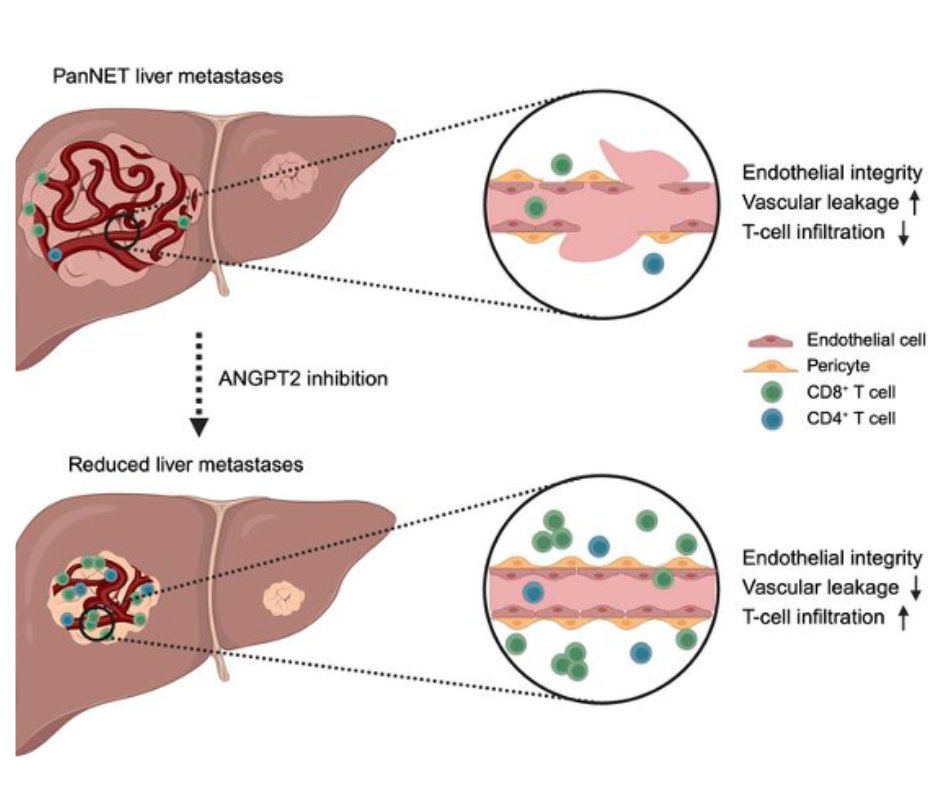Almost half of patients diagnosed with pancreatic neuroendocrine tumors (PanNETs) have tumors that have spread to their liver, which correlates with poorer outcomes. Given this, researchers like Minah Kim, PhD, Assistant Professor of Pathology & Cell Biology at Columbia University are keen to find out more about how these tumors metastasize, especially to the liver. In 2021, she was awarded a NETRF Investigator Award to study the mechanisms underlying liver metastasis, immune evasion, and their convergence on current immunotherapy resistance in pancreatic neuroendocrine tumors.

Cancer immunotherapy is a treatment that boosts the body’s natural defenses to fight cancer. However, when it comes to PanNETs, the results haven’t been as promising. Only about 10% of patients with advanced PanNETs respond to this type of therapy largely because the tumors create an environment that suppresses the immune response.
Here’s where things get interesting: the blood vessels in tumors are a bit odd—they’re not stable, and they sprout out more than usual. Some recent studies found that targeting a specific molecule, VEGFA, can make immunotherapy work better against cancer because it improves the function of blood vessels, in turn activating the immune system to recognize the cancer cells. PanNETs, with their unusual blood vessels, have shown some response to drugs that target VEGF signaling, but the results are mixed.
Enter ANGPT2, a molecule that plays a role in blood vessel growth and stability. Dr. Kim and her team were interested in studying it because of its potential involvement in the progression of PanNETs, especially to the liver. They found that high levels of ANGPT2 in PanNETs are linked to a poorer prognosis. When they blocked ANGPT2 in mouse models, liver metastases were slowed and the mice lived longer. Plus, the blood vessels showed improved integrity with more immune cells infiltrating the tumor, suggesting a stronger immune response against the cancer. See a depiction of this in the figure below.

Figure showing the effect of ANGPT2 inhibition. From Lee et al. J Clin Invest. 2023; 133(20):e167994. https://doi.org/10.1172/JCI167994. Published under the terms of the Creative Commons Attribution 4.0 International License
These results suggest that ANGPT2 plays a significant role in the metastasis of PanNETs to the liver. This knowledge could be used to identify patients with PanNETs at a high risk of metastasis, and further, this data may support the use of anti-ANGPT2 therapy in advanced PanNET disease. This breakthrough could pave the way for new treatments and better outcomes for patients.
This work was recently published in the Journal of Clinical Investigation. You may read the full publication here.
